Division of Medical Ethics and Law
ARESA
Faculty
 Prof Keymanthri Moodley
Prof Keymanthri Moodley
MBChB, MFamMed, FCFP(SA), MPhil (Applied Ethics), DPhil, is a Distinguished Professor in the Department of Medicine and Head of the Division of Medical Ethics and Law, Faculty of Health Sciences, Stellenbosch University. In 2017, she was appointed as Adjunct Professor in the Department of Social Medicine, University of North Carolina-Chapel Hill, USA. Keymanthri is a specialist family physician, bioethicist and has served as a Principal Investigator on clinical trials. She is an NRF rated researcher and has served on the SAMRC Board, the NHREC and in international organisations: WHO, International AIDS Society (IAS), NIH DSMBs and the WHO SAGE Ebola Working Group. The Division was re-designated as a Collaborating Centre in Bioethicsfor the third time in 2023 by the WHO, one of fourteen in the world and the first on the African continent. Keymanthri is a member of the Academy of Science in South Africa (ASSAf) and completed an Executive MBA in 2015. To date, she has been awarded research and capacity development grants to the approximate value of R68 million. The Division has trained 40 mid-career professionals from 10 African countries in bioethics, has 2 PhD graduates and is currently co-presenting an NIH funded Leadership program in Bioethics with 6 PhD trainees. Keymanthri serves on the Scientific Advisory Committee of EDCTP, Netherlands and the Science and Research Working Group of the International Paralympic Committee, Bonn, Germany.
 Prof Marc Blockman
Prof Marc Blockman
Assoc. Professor Marc Blockman graduated BPharm(UCT) with distinction, MBChB(UCT) and then became the first graduate in Clinical Pharmacology with an MMed degree from the University of Cape Town. He also holds the post-graduate diploma in international research ethics. He is an associate professor in the Department of Medicine, and senior specialist in the division of clinical pharmacology at Groote Schuur Hospital and the University of Cape Town. He has been involved in the science of pharmacology and its application to clinical medicine for 25 years. He is recognised as an expert on International, National and Provincial Drug Policy, serving on the Medicines Control Council Committee (Medicines regulatory committee) of South Africa, becoming Chairman of the South African Essential Drugs Programme and being appointed an Executive member of the Provincial Government of the Western Cape's Pharmaceutical Advisory Committee. He serves as an International Consultant for the WHO, assessing drug policy and drug regulation in many countries and advises on the implementation of remedial systems where appropriate. He exemplifies a strong culture of evidence based medical practice. He is a member of the Western Cape Clinical Guideline Advisory Committee, to assess Service Packages within the Province. He is a consultant expert to medicines formulary development committees in both the private and public sectors in South Africa, and has a special interest in the cost effectiveness of medicines, pharrnaco-economics and drug utilisation review .He is consultant to the Council for Medical Aid Schemes process of algorithm development for the chronic disease aspect of the PMBs. He is currently Chair of the Faculty of Health Sciences Human Research and Ethics Committee, and is chair of various data safety monitoring committees (DSMBs) He is a well respected lecturer and was awarded the Distinguished Teachers Award (DTA) from the University of Cape Town. He serves on the new curriculum development committee of the Health Sciences Faculty, and is the coordinator of the 6th year MBChB course. He has been appointed as a staff mentor for the Health Sciences Faculty student mentor programme as well as member of the Faculty's Medical Board.
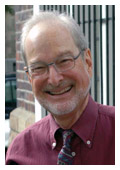 Dr Theodore Fleischer
Dr Theodore Fleischer
Theodore Fleischer, JD (Juris Doctor), LLM (Bioethics), began his practice of law at the Attorney General's office in Juneau, Alaska served as senior partner in the law firm of Guess and Rudd, Anchorage, Alaska, from 1967-1995, practicing primarily in natural resources, admiralty, and public law. He received his post-graduate degree in bioethics and law at McGill University in Montreal, Canada, in 1997, and for two years served as a fellow and senior fellow at the MacLean Center for Clinical Medical Ethics at the University of Chicago. Fleischer has served as Deputy Director of the University of Cape Town Bioethics Centre and Senior Lecturer in Bioethics in the Medical Faculty and Senior Lecturer in Law in the Faculty of Law at UCT. Along with a colleague in the law faculty, he initiated and has co-taught the first Law and Bioethics courses offered by the University of Cape Town Law Faculty. Fleischer has served on UCT's Research Ethics Committee since 2000. Fleischer was the Distinguished Lecturer in Bioethics at Santa Clara University Law School (California) from Jan to May 2011. He is an ordained deacon of the Anglican Church of Southern Africa, assigned to St George's cathedral in Cape Town, with a ministry to terminally ill and dying
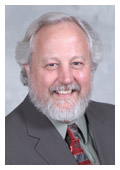 Prof Eric Juengst
Prof Eric Juengst
Eric Juengst is Professor of Bioethics and Director of the Center for Genetic Research Ethics and Law within the Department of Bioethics at the Case Western Reserve University School of Medicine in Cleveland, Ohio.
He received his B.S. in Biology from the University of the South in 1978, and his Ph.D. in Philosophy from Georgetown University in 1985. He has taught medical ethics and the philosophy of science on the faculties of the medical schools of the University of California, San Francisco and Penn State University. In addition, from 1990 to 1994, he served as the first Chief of the Ethical, Legal and Social Implications Branch of the National Center for Human Genome Research at the U.S. National Institutes of Health.
Dr. Juengst's research interests and publications have focused on the conceptual and ethical issues raised by new advances in human genetics and biotechnology. Since 1997 he has been the principal investigator of a series of N.I.H.-funded research projects examining the social policy issues that will be raised by the availability of genetic enhancement techniques and anti-aging interventions, and in 2004 he was awarded a NIH "Center of Excellence in Ethical, Legal and Social Implications Research" P50 grant in support of the work of the CWRU Center for Genetic Research Ethics and Law.
Dr. Juengst has served on the National Advisory Council for Human Genome Research at NIH, the National Bioethics Committee of the March of Dimes, the Ethics Committee of the American Society for Human Gene Therapy, and the Research Ethics Advisory Committee for NASA, the DNA Advisory Board for the Federal Bureau of Investigation, the Recombinant DNA Advisory Board of NIH, the Committee on Human Genetic Diversity for the National Academy of Sciences, and the Working Group on Human Germ-line Interventions for the American Association for the Advancement of Science. He sits on the editorial boards of the Journal of Medicine and Philosophy, IRB: Ethics and Human Research, Medical Humanities Reviews, the American Journal of Bioethics,Human Gene Therapy, and Public Health Genomics. In 2005, he was awarded the "Golden Eurydice Prize" for leadership in advancing the study of ethical issues in science by the International Forum on Biophilosophy, Leuven, Belgium
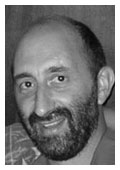 Prof Leslie London
Prof Leslie London
MBChB, MD (Public Health), DOH, M Med (Community Health), BSc Hons (epid) is a Senior Specialist in Public Health at the University of Cape Town, South Africa. He is Director of the School of Public Health and Family Medicine and Head of its Health and Human Rights programme. He has served on the South African National Health Research Ethics Council, the Advisory Committee on Human Rights, Ethics and Professional Practice for the Health Professions Council of South Africa and on Boards and Committees of health and human rights non-governmental organisations. His research includes work on the right to health, dual loyalties and human rights, and environmental justice, as well as health hazards related to pesticide exposures in rural communities. He teaches under- and postgraduates in human rights and public health at UCT and other higher education institutions in the country.
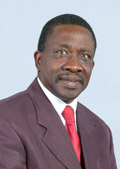 Prof Gboyega Ogunbanjo
Prof Gboyega Ogunbanjo
Prof. Gboyega A Ogunbanjo is HOD: Family Medicine & Primary Health Care, University of Limpopo (Medunsa Campus), South Africa and the senior vice-President of the Colleges of Medicine of South Africa (CMSA). His special interests include evidence-based medicine, epidemiology, communicable and non-communicable diseases. He has 151 publications in both local and international peer-reviewed medical journals, and has presented at numerous national and international conferences. He has fellowships from the College of Family Physicians of South Africa, Australian College of Rural & Remote Medicine, Australasian College of Tropical Medicine, South African Academy of Family Practice, West African College of Physicians. He is the editor-in-chief of the SA Family Practice Journal and the Transactions Journal of the Colleges of Medicine of South Africa. He serves on a number of editorial boards both locally and internationally.
 Dr Nandi Siegfried
Dr Nandi Siegfried
Nandi obtained her medical degree from the University of Cape Town, an MPH (Hons) from the University of Sydney, Australia, and a Fellowship in the College of Public Health Medicine (South Africa). She was a Nuffield Medical Fellow at the University of Oxford from 2004 to 2007, based in the Nuffield Department of Medicine Clinical Trials Service Unit, where she obtained a DPhil in Clinical Epidemiology. Until November 2010, Nandi was Co-Director of the South African Cochrane Centre, an intramural research unit based at the Medical Research Council (MRC), where she was responsible for research and training related to systematic reviews primarily in HIV/AIDS. In 2008 she initiated the MRC Clinical Trials Support Initiative to encourage, enhance and support the conduct of clinical trials. She has published widely and enjoys teaching and lecturing. She has contributed to several World Health Organization HIV/AIDS guidelines and is the South African representative on the Organization for Cooperation and Economic Development Working Group on Non-commercial Clinical Trials. She holds an honorary senior lectureship at the University of Cape Town and consults independently.
 Katherine Lawrence
Katherine Lawrence
HDipEd, BSc (HMS), BSc (Med) (Hons) Sport Science, worked in Information Technology in the commercial environment for a number of years before moving to the academic environment in 2002. She joined the Desmond Tutu TB Centre of the Faculty of Health Sciences at Stellenbosch University where she worked as Data Manager in community based research in TB and HIV until last year. She has attended a number of international courses and congresses. She has been involved in teaching data management at all levels, including Operations Research Workshops for researchers and participants from the Department of Health, and lectures on the Masters in Clinical Epidemiology course at Stellenbosch University. She is currently a Data Management Consultant and is studying Monitoring and Evaluation Methods through CREST at Stellenbosch University.
 Prof Landon Myer
Prof Landon Myer
Associate Professor in the School of Public Health & Family Medicine at the University of Cape Town and an Adjunct Associate Professor in the Department of Epidemiology at the Mailman School of Public Health, Columbia University. He has been a member of the Health Sciences Research Ethics Committee at the University of Cape Town since 2010.
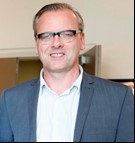
Professor Stuart Rennie
Research Assistant Professor, Social Medicine Co-Chair, UNC Behavioral Institutional Review Board MA 1995, Anthropology, University of Leuven, Belgium PhD 2001, Philosophy, University of Leuven, Belgium. Stuart Rennie is a Research Assistant Professor in Social Medicine and co-Chair of UNC-Chapel Hills Institutional Review Board for social and behavioral research. His background is in philosophy and medical anthropology, and his doctoral dissertation concentrated on the impact luck and chance can have on attributions of moral responsibility. Dr. Rennie's current teaching and research interests focus on research ethics, public health ethics, and medical ethics, particularly in the context of the developing world. He is currently co-Principal Investigator of an NIH/Fogarty International Center bioethics capacity building project in the Central Francophone Africa ('Building Bioethics Capacity and Justice in Health') and works as an ethics consultant for CDC/Global AIDS Projects in the Democratic Republic of Congo and Madagascar.
Dr. Rennie was Visiting Lecturer at the Center for Bioethics in Stellenbosch, and Lecturer in philosophy at UNC-Greensboro, and Lecturer in applied ethics in the Department of Philosophy at the University of Cape Town. In addition to giving guest lectures on research ethics and bioethics within various departments at UNC, Dr. Rennie regularly leads a graduate seminar on Global Health Ethics and co-teaches a doctoral seminar on the history and philosophy of epidemiology at the UNC School of Public Health. As ethics consultant, Dr. Rennie has acted as lead author of the Ethics Guidance for Research (2009) of the HIV Prevention Trials Network (HPTN) and has provided ethics consultation for UNC researchers as a member of the International Core of the UNC's Center for AIDS Research (CFAR). He was also ethics consultant for the AIDS Drug Assistance Program (ADAP) of the Minnesota Department of Human Services. Dr. Rennie is also ethics reviewer for the European and Developing World Clinical Trials Partnership (EDCTP) and the Wellcome Trust. Dr. Rennie has also successfully applied for NIH grants to conduct qualitative research on rationing AIDS treatment in DR Congo and community attitudes to male circumcision as an HIV prevention strategy in Malawi. He has published in peer-reviewed journals such as PLoS Medicine, Science, the Hastings Center Report, Developing World Bioethics and the Journal of Medical Ethics on a variety of themes, including informed consent, HIV testing policies, medical rationing, implementation ethics, research involving children, health surveillance, health inequality and social justice. He is also writes for his own Global Bioethics Blog.
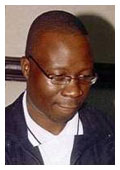 Prof Nhlanhla Mkhize
Prof Nhlanhla Mkhize
Prof Mkhize is the current Dean of Humanities, Development & Social Sciences at the University of KwaZulu-Natal. (South Africa). After graduating with an Honours degree (cum laude) at the University of Natal, he was awarded the Fulbright scholarship to pursue his studies in the US. He obtained his MA from the University of Iowa (Iowa City), and his PhD from the University of Natal. He has been a Moody Visiting Scholar (University of Michigan, 1998) and a Bram Fischer scholar (Oxford University, 2001). In 2002, he attended the Fogarty Research Ethics Program at the Bloomberg School of Public Health, Johns Hopkins University, US (Summer term). Dr Mkhize is a co-principal investigator of the South African Research Ethics Training Initiative (SARETI), a collaborative multidisciplinary research ethics programme between the University of KwaZulu-Natal and the University of Pretoria. SARETI aims to build capacity in Africa for the ethical review of research with human participants by providing postgraduate training opportunities for suitably qualified stakeholders in research and ethical review. Dr Mkhize teaches a module on African Ethics, with reference to African philosophical underpinnings to ethics and also touching on the interface between culture, health and illness. He also serves as a consultant to the HIV-Aids Vaccines Ethics Group (HAVEG), based in the School of Psychology at the University of KwaZulu-Natal. In his capacity as HAVEG consultant, he has co-chaired and facilitated many workshops and symposia on the ethics of health-related research. He has been invited to give keynote addresses nationally and internationally on the subject of indigenous knowledge systems, morality/ethics and the self. Dr Mkhize was the first to introduce undergraduate modules on African Psychology in the country and is also involved in research on the meaning of fatherhood for African males. He has published journal articles on cultural aspects of counselling. He is one of the editors of Critical Psychology (UCT Press, 2004), a book in which he has published chapters on African approaches to psychology. He is currently editing a book on African Psychology.

Michael Parker
Michael Parker is Professor of Bioethics and Director of the Ethox Centre at the University of Oxford. His main research interest is in the ethical and social dimensions of collaborative global health research. He leads the ethics programmes of the Malaria Genomic Epidemiology Network (MalariaGEN) http://www.malariagen.net which carries out genomic research into severe malaria in childhood at 24 sites in 21 countries (funded by the Wellcome Trust and the Bill and Melinda Gates Foundation through the Foundation for the National Institutes of Health as part of the Grand Challenges in Global Health initiative). He also leads the ethics programme of the MRC Centre for Genomics and Global Health and is the Principal Investigator of the Collaborative Global Health Research Ethics Network (funded by a Wellcome Trust Biomedical Ethics Enhancement Award).
Since 2001, Michael has co-ordinated the Genethics Club http://www.genethicsclub.org a national ethics forum for health professionals and genetics laboratory staff in the United Kingdom to discuss the ethical issues arising in their day-to-day practice and to share good practice. This provides the background to Michael's other main research interest which is in the ethical aspects of the clinical use of genetics.
Michael is on a number of committees and working parties. He is a member of the Data Access Committee of the Welcome Trust Case-Control Consortium, the Ethics in Practice Committee of the Royal College of Physicians, the Department of Health's Committee for the Ethical Aspects of Pandemic Influenza, the Advisory Board of DECIPHER, and is a Fellow of the Faculty of Public Health. He has previously been a member of a number of national and international committees and working parties including: The Academy of Medical Sciences Working Party on the Regulation and Governance of Health Research, Lord Warner's Ad Hoc Advisory Committee on Research Ethics, the Ministerial Task Force on the Summary Care Record, the Royal College of Physicians Working Party on Clinical Ethics Committees, the Steering Committee of the UK Clinical Ethics Network, and the Board of Directors of the International Association of Bioethics.

Prof Jerome Amir Singh
Jerome Amir Singh, BA, LLB, LLM, PhD, MHSc, is Head of Ethics and Law at the Center for the AIDS Programme of Research in South Africa (CAPRISA), Nelson R. Mandela School of Medicine, University of KwaZulu-Natal (UKZN), Durban, South Africa; Adjunct Professor in the Dalla Lana School of Public Health Sciences and Joint Center for Bioethics at the University of Toronto, Canada; and, Course Director for Bioethics and the Law at Howard College School of Law, UKZN, Durban, South Africa. Dr Singh co-directs the Bill and Melinda Gates Foundation's Ethical, Social, and Cultural Issues Advisory Service. He serves on the Critical Path for TB Drug Regimens (CPTR) Initiative's eight-member Coordinating Group, and on several research bodies, including, the International Research Ethics Board of Médecins Sans Frontières (MSF), the Research Ethics Committee of the South African Human Sciences Research Council, the Scientific Advisory Board of the Aurum Institute of Health Research, and the Bioethics Advisory Committee for the US Foundation for the National Institutes for Health's MAL-ED study. He has served as a member of US NIH's Data and Safety Monitoring Board for Africa, the World Health Organisation's Ethics Task Force on TB Management, and on the health law advisory committee to the South African Law Reform Commission.

Prof Anton van Niekerk
BTh, DPhil is a professor of philosophy and director of the Centre for Applied Ethics on the main campus, Stellenbosch University. He is respected both internationally and nationally for his expertise in bioethics. In South Africa one of his most noteworthy achievements has been the development of the Master's programme in philosophy (applied ethics). Many of his graduates are involved in bioethics teaching throughout South Africa and internationally. Prof van Niekerk has served on the research ethics committess of Stellenbosch University and the Medical Research Council (MRC. He has published widely in the field of bioethics and contributes to the undergraduate teaching of medical ethics in the Faculty of Health Sciences.
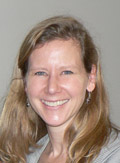 Dr Amy Corneli
Dr Amy Corneli
Amy Corneli is a Scientist in Behavioural and Social Sciences at FHI 360. She has a PhD in Health Behaviour and Health Education from the University of North Carolina at Chapel Hill and an MPH in International Health from Emory University. Over the past 15 years, she has led research in multiple countries in Africa, the Middle East, Asia, and North America focusing on HIV prevention, prevention of micronutrient malnutrition, and research ethics, including research on comprehension of informed consent, acceptability of informed assent, and functioning of research ethics committees. She currently serves as the Behavioural Principal Investigator on FEM-PrEP, a phase 3, placebo-controlled, clinical trial of oral Truvada PrEP for HIV prevention in women in sub-Saharan Africa. Dr. Corneli has been involved in IRB capacity building activities in Africa and has published ethics-related research in the Journal of Medical Ethics, AIDS and Behaviour, Journal of the International AIDS Society, and Journal of Empirical Research on Human Research Ethics, and Contemporary Clinical Trials.
 Dr Lesley Henley
Dr Lesley Henley
Originally trained as a social scientist but is now a "hybrid". She spent many years in the Department of Paediatrics and Child Health teaching the psychosocial aspects of medicine to undergraduate medical students. During this period, she supervised post-graduate research in paediatrics and nursing. Her PhD, completed in the Faculty of Health Sciences, focused on children with cystic fibrosis and their families. She obtained an MPhil in Bioethics in 2000. For 8 years, she was a module director on the Fogarty-sponsored Graduate Diploma in International Research Ethics. Currently, she teaches research ethics and is a Deputy Chairperson on the Human Research Ethics Committee in the Faculty of Health Sciences (UCT).
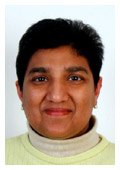 Prof Sudeshni Naidoo
Prof Sudeshni Naidoo
BDS (Lon), LDS.RCS (Eng), MDPH (Lon), DDPH.RCS (Eng), MChD (UWC), PhD (US), Dipl. Int Research Ethics (UCT) is professor and senior specialist in the Faculty of Dentistry, University of the Western Cape. She is currently Deputy Dean for Postgraduate Studies and Research. Prof Naidoo is responsible for undergraduate, postgraduate and staff ethics teaching and training in research ethics in the faculty. She sits on the UWC Senate Human and Animal Research Ethics Committees, is the current President of the South African Division of the International Association of Dental Research (IADR) and Chair of the Global IADR Research Ethics Committee in the US.
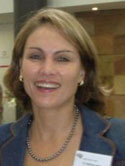 Prof Haylene Nell
Prof Haylene Nell
MBChB, BScHons (Epid) BScHons (Pharm) is Head of the Tiervlei Trial Centre at Karl Bremer Hospital, a dedicated clinical trials centre, founded in 2000. She a Co-Course Leader of the Postgraduate Diploma in Pharmaceutical Medicine presented by the Division of Pharmacology, Medical School, Tygerberg Campus. The University of Western Cape has appointed her as Extra Ordinary Associate Professor in the South African Herbal and Science Institute, where she acts as consultant in the design and conduct of clinical trials for natural medicines. She acts as medical adviser for Cape Town Data a local data management company and served on the Stellenbosch research ethics committee, FHS, for 5 years.

